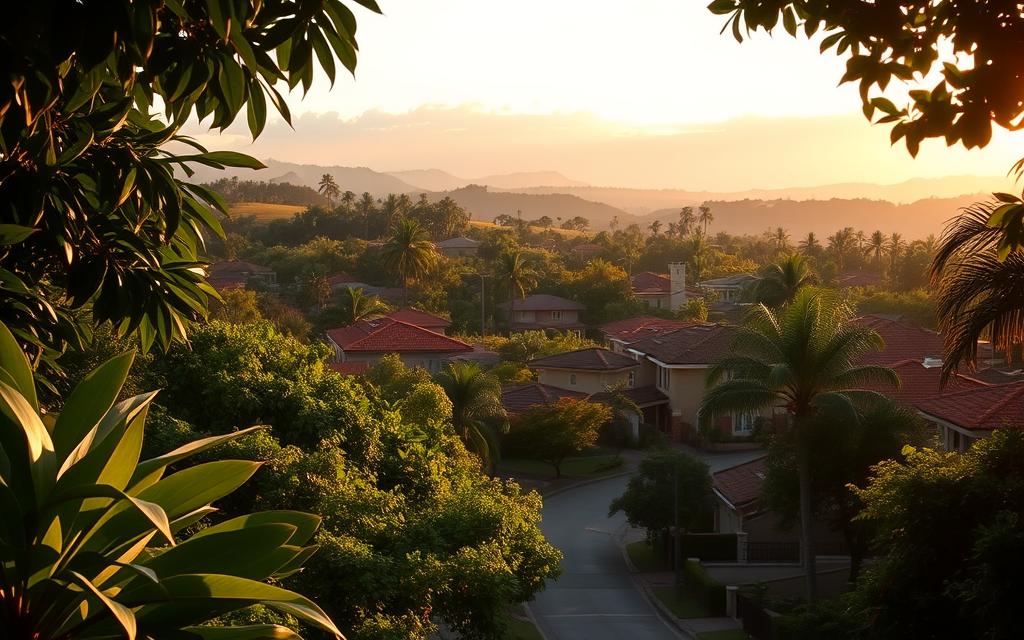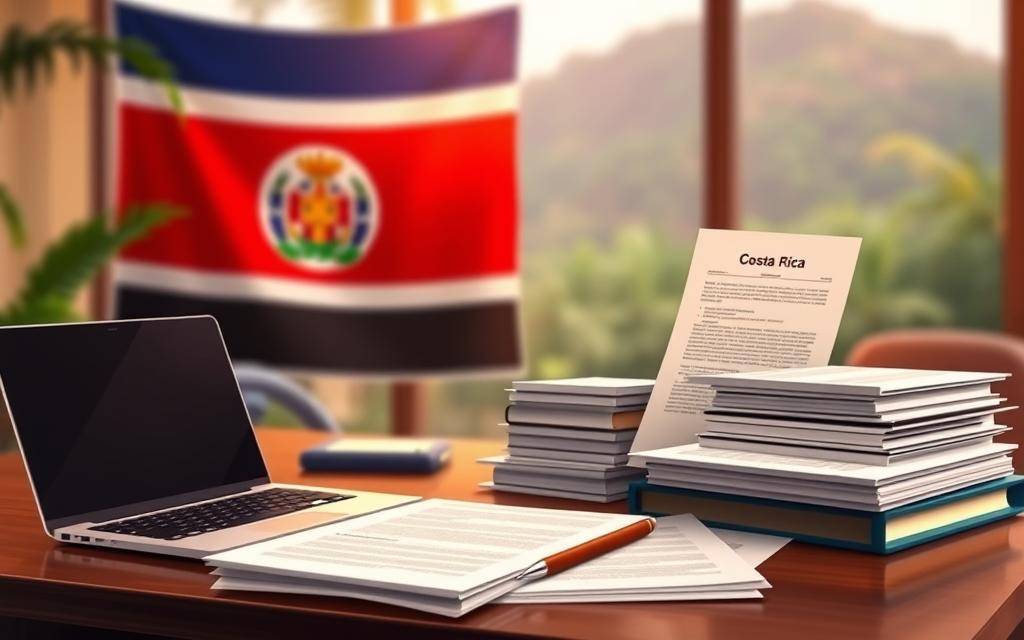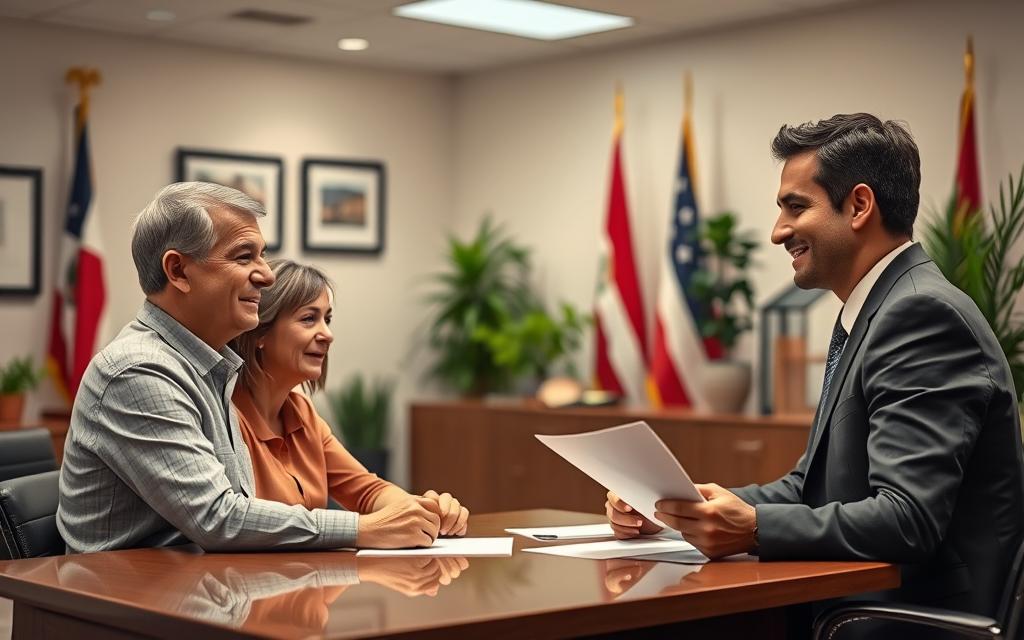Guide to Sponsoring a Spouse for Costa Rica Residency

Residency in Costa Rica has become an attractive option for individuals and families seeking a better quality of life. Known for its natural beauty and rich culture, Costa Rica is a desirable destination for those looking to settle permanently or temporarily.
After living in Costa Rica for several years, many individuals, like Yeison and the author, have tied the knot and navigated the process of obtaining residency through marriage to a Costa Rican citizen. This pathway grants temporary residency, valid for one year and renewable for additional one-year periods for three years, after which one becomes eligible for permanent residency.
We will explore the comprehensive process of sponsoring a spouse for residency, covering initial eligibility requirements, documentation, financial considerations, and legal procedures to ensure a successful application.
Understanding Residency Options in Costa Rica

With its welcoming attitude towards foreigners, Costa Rica provides multiple pathways to residency, each with its unique requirements and benefits. Costa Rica offers a variety of residency options to suit the needs and circumstances of applicants. Among the most common options are rentista residency, designed for those with stable and sufficient income, and permanent residency, which allows foreigners to live indefinitely in the country after meeting specific requirements.
Types of Residency Programs Available
Costa Rica has established five main residency programs for foreigners: retiree (pensionados), fixed income (rentistas), investors, foreign workers, and family-based options, including marriage to a Costa Rican citizen. The pensionado program requires proof of a minimum monthly pension income, while the rentista option demands demonstration of stable passive income. The investor program necessitates a significant financial commitment, typically around $150,000 USD, to Costa Rican business or real estate.
Benefits of Residency Through Marriage
Marriage-based residency offers a more accessible path without the substantial financial requirements of other programs, though it requires proof of a legitimate relationship. Benefits include the ability to work legally in Costa Rica, access to the national healthcare system, and a clear path to permanent residency after three years. Eventually, after maintaining residency and being married for two years, and living in Costa Rica for two years, one can apply for citizenship.
How to Sponsor a Spouse for Costa Rica Residency

Sponsoring a spouse for Costa Rica residency involves a detailed process that starts with understanding the eligibility criteria. The process is designed for couples where one spouse is a Costa Rican citizen, offering a pathway to residency for the foreign spouse.
Eligibility Requirements for Spousal Sponsorship
To be eligible, couples must have a legally recognized marriage to a Costa Rican citizen, registered with the Costa Rican Civil Registry. Both parties must demonstrate that the marriage is genuine and not for immigration purposes. The Costa Rican spouse must also show financial capability to support their partner.
Temporary vs. Permanent Residency Through Marriage
Marriage to a Costa Rican citizen initially grants temporary residency for one year, renewable for up to three years. After three years, the foreign spouse can apply for permanent residency, offering greater stability. The path to permanent residency requires compliance with immigration requirements, including registration with the Costa Rican Social Security system.
Essential Documentation Needed
To initiate the Costa Rica residency application process, it's vital to understand the necessary documentation. Gathering the essential documents is a critical first step in the spousal sponsorship process.
Birth and Marriage Certificates with Apostille
Your birth certificate and marriage certificate are fundamental documents required for the application. Both must be official copies and properly authenticated with an apostille if issued in a country that is part of the Hague Convention of 1961, such as the United States.
It's essential to obtain recent copies of these documents, typically issued within the last six months, to ensure their validity for the application process.
Background Check Requirements
Background checks are another critical component of the application. You will need to obtain a police clearance certificate from your country of citizenship and any other country where you've lived for six months or more in the past three years.
These documents are time-sensitive, usually valid for only six months from the date of issue, so timing your application carefully is crucial.

Preparing Your Documentation
Gathering the necessary documents is a vital part of the Costa Rica residency application process. To ensure a smooth application process, it's crucial to understand the requirements for obtaining and preparing the necessary documents.
Obtaining Documents from Your Home Country
For U.S. citizens, obtaining a birth certificate typically involves requesting it through state vital records offices or third-party services like VitalChek. The cost varies by state, approximately $50-70 including shipping. The apostille process requires sending the original document to your state's Secretary of State office along with a small fee and a completed application form. For instance, the process of obtaining a birth certificate with an apostille can take around three weeks, as experienced by one applicant who used VitalChek and paid $51 USD for the birth certificate and $12 for shipping.
Document Translation and Authentication
All documents not in Spanish must be translated by an official translator in Costa Rica. Authentication of documents through the apostille process verifies their legitimacy for international use. For more information on the requirements for Costa Rica residency, you can visit Jaros CR, which provides detailed insights into the process.
It's also essential to plan the timing of your document preparation carefully, as background checks are typically valid for only six months. Delays in processing your residency application could mean having to obtain new documents if the originals expire. Making multiple copies of all documents and keeping digital scans as backups is advisable, as the residency process may require submitting the same documents to different agencies.
Step-by-Step Application Process

For couples looking to secure residency in Costa Rica, the application process is straightforward when broken down into manageable parts. We will guide you through the essential steps to successfully obtain residency through marriage.
Preparing Your Application Package
Preparing your application package is a critical step in the residency process. Many applicants choose to hire a lawyer specialized in Costa Rican immigration to help navigate the process. Your application package must include all required documents, such as an authenticated birth certificate, background check with apostille, marriage certificate, passport copies, application forms, and proof of the relationship's legitimacy.
Submitting Your Application to Immigration
Once your application package is complete, you'll need to submit it to the immigration office. This involves paying the initial application fees at a designated bank, typically Banco de Costa Rica, and including the receipt with your application. After submission, you'll be assigned a file number, and you and your Costa Rican spouse will likely be scheduled for an interview to verify the authenticity of your relationship.
The Immigration Interview Process

The immigration interview is a crucial step in the spousal residency application process in Costa Rica, designed to verify that the marriage is genuine and not solely for immigration purposes. Both applicants and their Costa Rican spouses must attend this interview together, typically at the immigration office in their regional jurisdiction.
What to Expect During Your Couples Interview
During the interview, immigration officials will ask questions about the couple's relationship history, daily life, and future plans in Costa Rica. They may also inquire about each other's families and important dates in their relationship. It's essential to bring additional evidence of the relationship, such as photographs and communication records, to support the application.
Tips for a Successful Interview
To ensure a successful interview, couples should be honest and straightforward in their responses. It's also recommended to avoid rehearsed or memorized answers, as immigration officials are trained to detect inconsistencies. For non-Spanish speaking applicants, arranging for a translator may be necessary. For more information on the citizenship test for expatriates over 65, you can visit this resource.
Financial Requirements and Considerations
When applying for residency in Costa Rica via marriage, it's essential to consider the various financial requirements involved. Understanding these costs helps in planning and ensuring compliance with immigration regulations.
Required Fees and Payments
The application process for Costa Rica residency through marriage involves several fees. Initial application fees include government filing fees (approximately $50-100), document authentication costs, and translation services if needed. After approval, you'll need to pay for your DIMEX (residency card), which costs approximately $98 for the first issuance. For more information on related services, you can visit Jaros CR.
Social Security (Caja) Enrollment
Mandatory enrollment in the Costa Rican Social Security system (Caja Costarricense de Seguro Social) is a significant financial consideration. Monthly payments are based on your declared income, typically ranging from $75-200 per month. This provides access to the public healthcare system for you and potentially your dependents. To enroll, you'll need to register voluntarily and provide proof of monthly income.
Legal Assistance Options
The process of sponsoring a spouse for Costa Rica residency involves several legal intricacies that may require professional guidance. When pursuing residency in Costa Rica through marriage, you have the option to navigate the process independently or hire professional legal assistance.
Benefits of Hiring an Immigration Lawyer
Hiring an immigration lawyer specialized in Costa Rican residency can significantly streamline the process. They provide expert guidance on document preparation, application submission, and interview preparation. Lawyers familiar with the Costa Rican immigration system can anticipate potential issues, help you avoid common mistakes, and potentially expedite your application. For more information on finding the right legal assistance, you can explore options on this website. The cost typically ranges from $800 to $1,500, which includes document preparation and application filing.
DIY Approach: Pros and Cons
Taking the DIY approach can save you money on legal fees and give you control over your application. However, it requires significant research, organization, and potentially Spanish language skills. The main risks include potential errors in document preparation or submission that could result in application rejection. For those comfortable with bureaucratic processes and with some Spanish language ability, the DIY approach is feasible as the immigration department provides information on their website.
Common Challenges and Solutions

When applying for residency in Costa Rica through marriage, several challenges may arise. Applicants must navigate complex documentation, lengthy processing times, and specific requirements.
Document Expiration Issues
One common challenge is document expiration. Background checks and other official documents are typically valid for only six months. If the application processing extends beyond this timeframe, new documents may be required at additional cost. To mitigate this, it's advisable to time document gathering carefully and consider applying during less busy periods.
Navigating the Renewal Process
The renewal process for temporary residency presents its own challenges. Renewal applications should be started approximately 2-3 months before the current residency expires. Requirements typically include proof of ongoing marriage, evidence of Caja (Social Security) payments, and payment of renewal fees. Maintaining organized records is essential for a smooth renewal process.
Conclusion
With careful planning and the right guidance, couples can successfully navigate the process of obtaining residency in Costa Rica. The journey begins with temporary residency, valid for one year and renewable for up to three years, after which they can apply for permanent residency.
Throughout this process, understanding the immigration requirements and preparing the necessary documentation is crucial. The benefits of obtaining residency through marriage extend beyond legal status to include work authorization, access to healthcare, and the ability to fully participate in Costa Rican society.
After three years of temporary residency, couples can transition to permanent residency, offering greater stability and fewer renewal requirements. For those committed to making Costa Rica their home, citizenship becomes an option after being married for at least two years and living in the country for a minimum of two years. For personalized assistance with your residency application, you can contact JAROS CR at www.jaroscr.com, info@jaroscr.com, or +(506)7182-8969.


